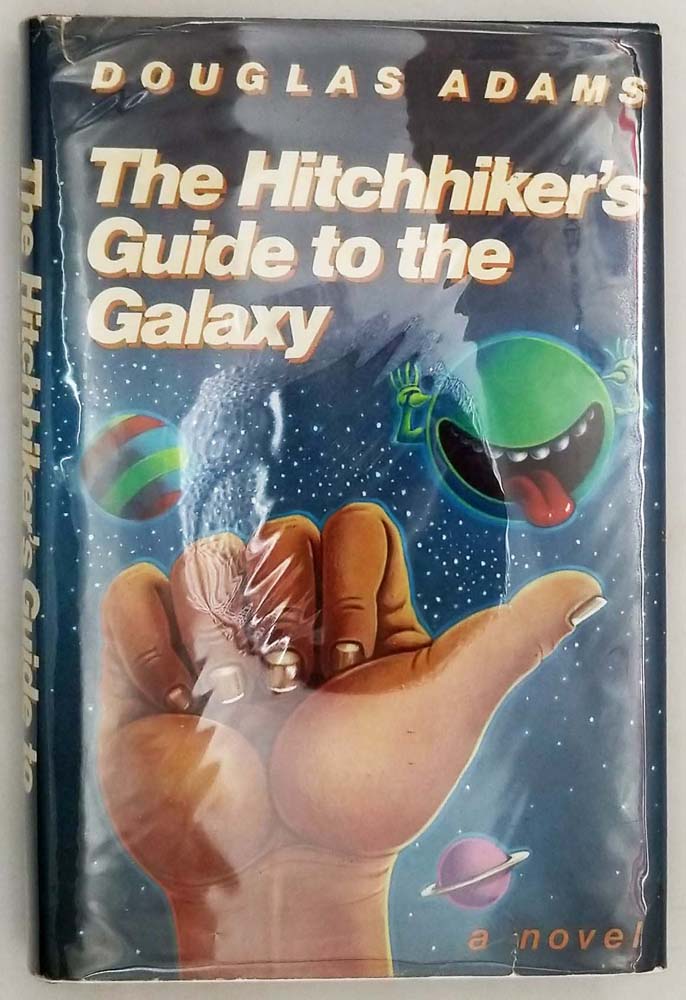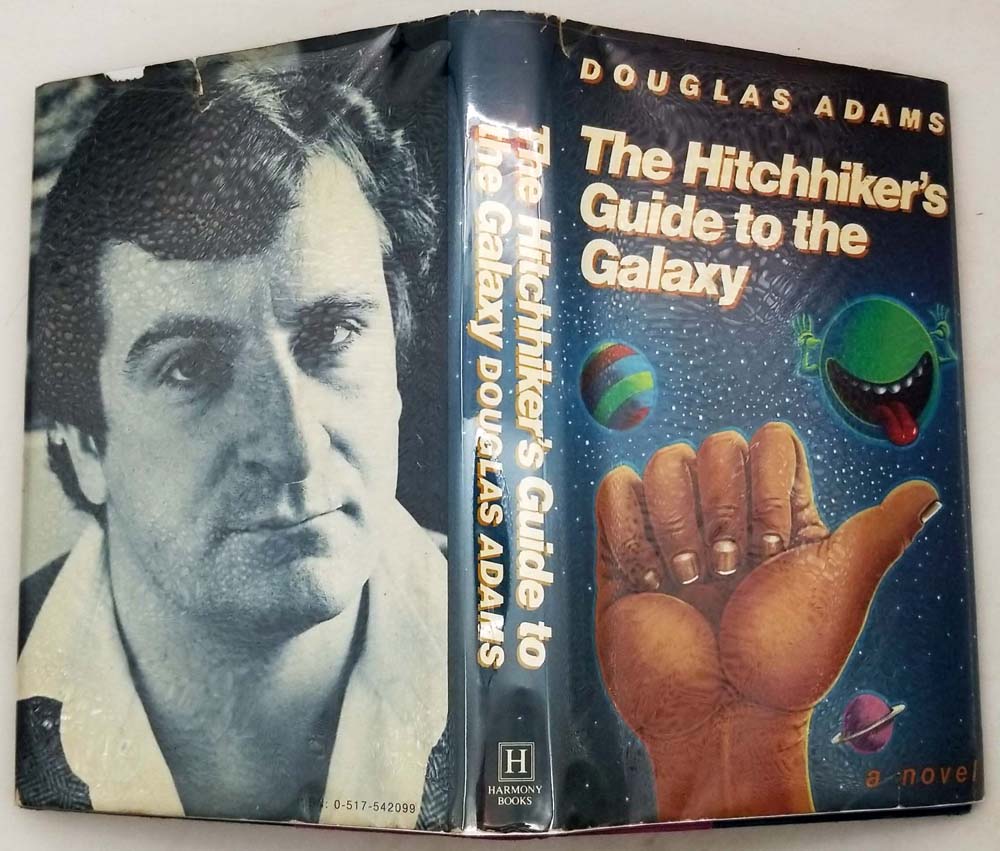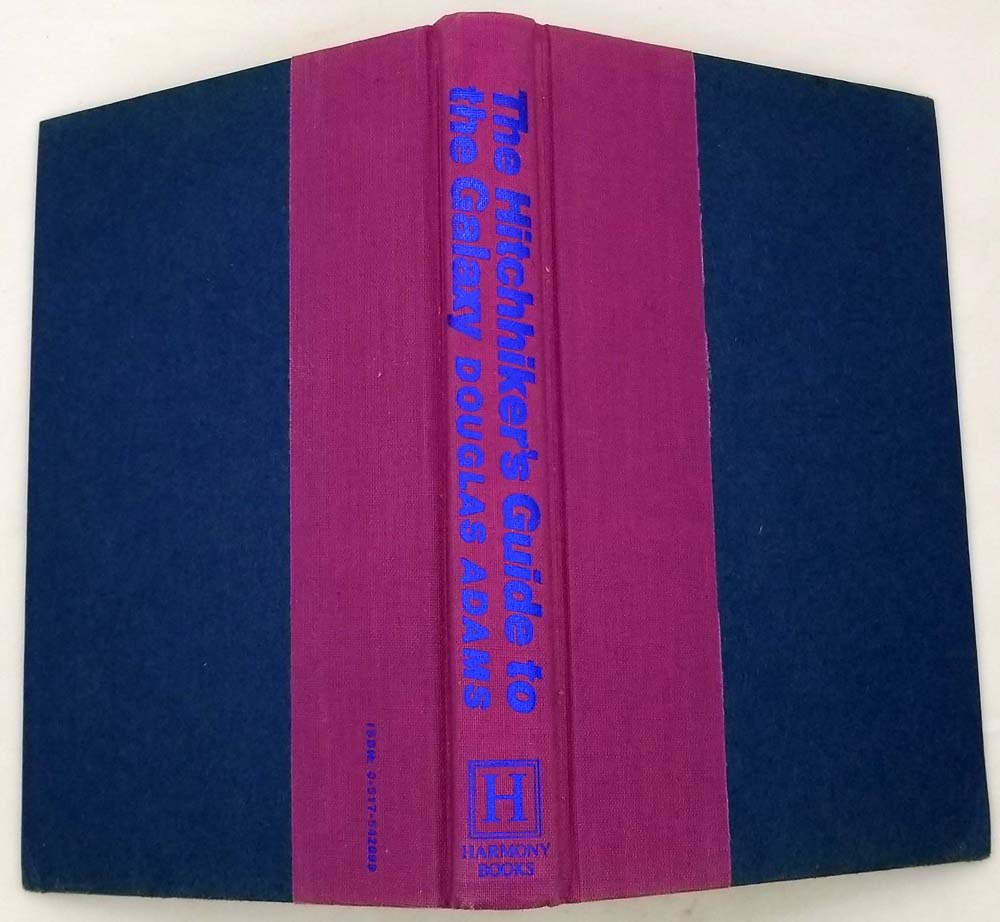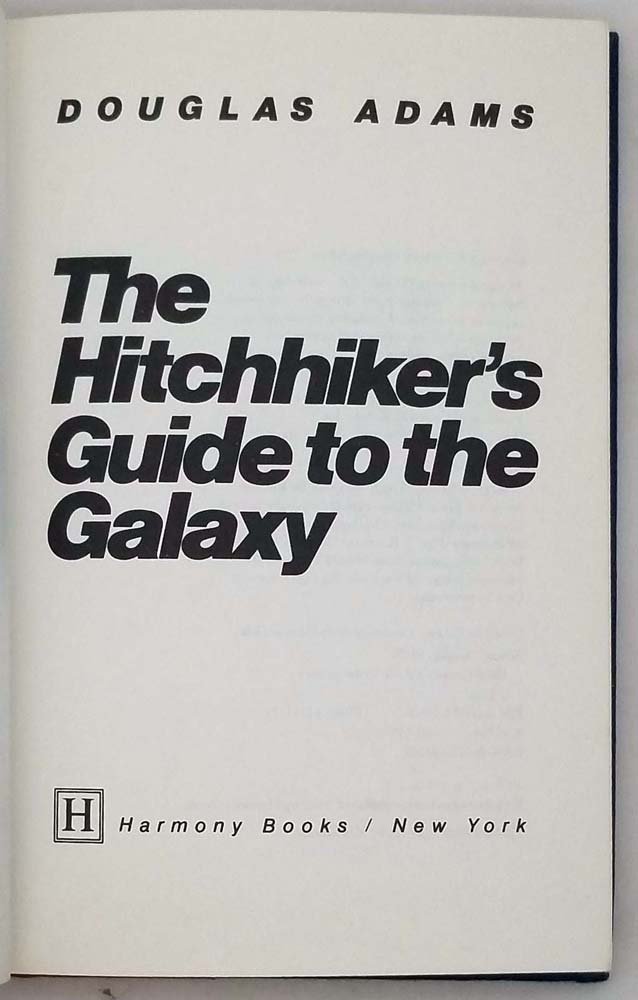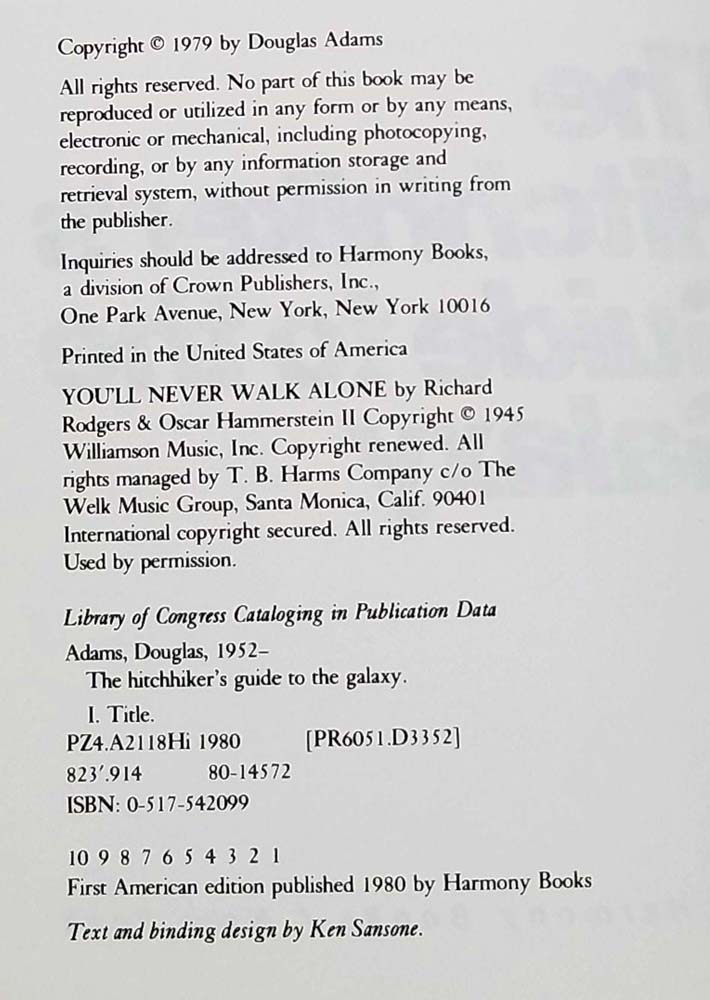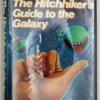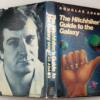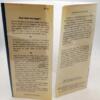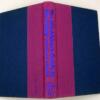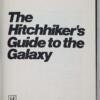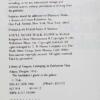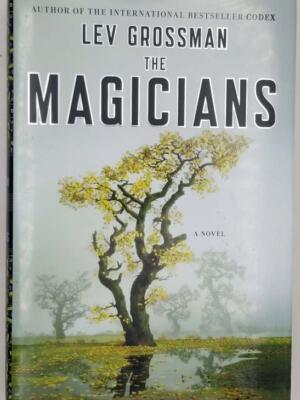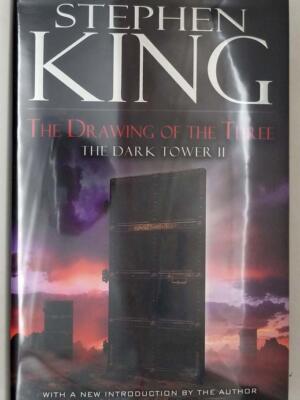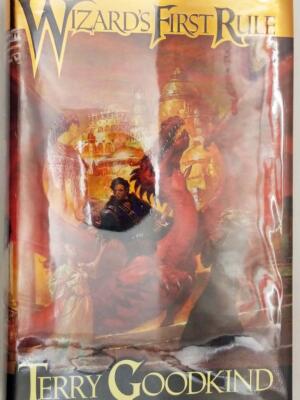The Hitchhiker’s Guide to the Galaxy (1979) by Douglas Adams is a brilliantly absurd and irreverent science fiction comedy that begins with Earth’s unceremonious destruction—vaporized by a bureaucratic alien race called the Vogons to clear the way for an interstellar highway. The sole human survivor, Arthur Dent, is whisked off the planet by his best friend Ford Prefect, who reveals himself to be an alien researcher for The Hitchhiker’s Guide to the Galaxy, a satirical, electronic travel manual offering dubious advice like “Don’t Panic” and declaring the meaning of life to be the number 42.
Thrown into a chaotic cosmic journey, Arthur encounters a colorful cast of misfits: Zaphod Beeblebrox, the narcissistic, two-headed ex-President of the Galaxy; Trillian, the only other human survivor (and astrophysicist); and Marvin, a genius but terminally depressed robot. Their adventures span stolen spaceships, improbability-driven escapes, and encounters with bureaucratic nightmares (like the Vogon poetry, a torture worse than death).
Adams’ razor-sharp wit and existential humor dissect everything from politics to philosophy, all wrapped in a narrative that’s as unpredictable as it is hilarious. What began as a BBC radio drama became a cultural phenomenon, spawning books, TV series, and a film. At its heart, Hitchhiker’s is a celebration of chaos, curiosity, and the sheer absurdity of existence.
For fans of: Terry Pratchett’s Discworld, Good Omens (Gaiman/Pratchett), Red Dwarf., or anyone who’s ever looked at the universe and wondered, “Why?”
